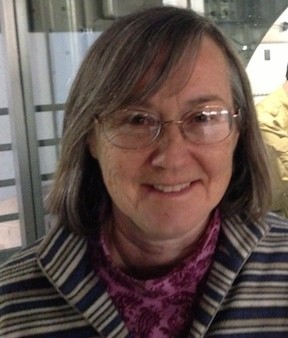
Star and Planet Formation Laboratory at Cal State LA: visit our website /research/astro
Some of the research opportunities for students in astrophysics are described at the following URL
/centers/NASA_DIRECT_STEM
Education:
| Institution | Degree | Date | Field |
|---|---|---|---|
| Univ of California Santa Cruz | B.A. | 1977 | Physics |
| Univ of California Berkeley | Ph.D. | 1984 | Astronomy |
Employment History:
2011-present: Professor of Physics and Astronomy (Chair 2011-2012),
California State University Los Angeles, Los Angeles, California
2006-2011: Associate Professor of Physics and Astronomy
California State University Los Angeles, Los Angeles, California
2001-2006: Assistant Professor of Physics and Astronomy
California State University Los Angeles, Los Angeles, California
1996-2001: President
Extrasolar Research Corporation, Pasadena CA & Niskayuna NY
2000-2001: Visiting Research Professor
Union College, Schenectady, NY
1989-1996: Research Scientist
Infrared Processing and Analysis Center, Caltech and JPL, CA
1989: Postdoctoral Fellow
Canadian Institute of Theoretical Astrophysics, Toronto, CAN
1986-1989: Postdoctoral Fellow
Owens Valley Radio Observatory, Caltech, CA
1986-1989: Postdoctoral Fellow
High Altitude Observatory, NCAR, Boulder, CO
Academic and Professional Societies: American Astronomical Society; Optics Society of Southern California
Selected Publications:
- “The Power of FORCAST in Estimating Internal Luminosities of Low Mass Proto- stars”, Huard, Tracy L and Terebey, Susan; 2017 Astrophysical Journal, 851, 115
- “A First Look at the Auriga-California Giant Molecular Cloud with Herschel and the CSO: Census of the Young Stellar Objects and the Dense Gas”, P. M. Harvey, C. Fallscheer, A. Ginsburg, S. Terebey, et. al., 2013 ApJ 764, 133
- “The Spitzer Survey of Interstellar Clouds in the Gould Belt. V. Ophiuchus North Observed with IRAC and MIPS", J. Hatchell, S. Terebey, T. Huard, E. E. Mamajek, L. Allen, T. L. Bourke, M. M. Dunham, R. Gutermuth, P. M. Harvey, J. K. Jorgensen and 3 coauthors 2012 ApJ 754, 104
- “New Young Star Candidates in the Taurus-Auriga Region as Selected from WISE" L. M. Rebull, X. P. Koenig, D. L. Padgett, S. Terebey, P. M. McGehee, L. A. Hillenbrand, G. Knapp, D. Leisawitz, W. Liu, A. Noriega-Crespo, M. Ressler, K. R. Stapelfeldt, S. Fajardo-Acosta, A. Mainzer 2011, ApJS 196, 4
- “Evolutionary Models of the Formation of Protostars out of Low-Mass, Dense Cores: Towards Reconciling Models and Observations", M. M. Dunham, N. J. Evans, II, S. Terebey, C. P. Dullemond \& C. H. Young, 2010, Astrophysical Journal, 710, 470
- “Far-infrared Observations of the Very Low-Luminosity Embedded Source L1521F-IRS in the Taurus Star-Forming Region.”, S. Terebey, M. Fich, A. Noriega-Crespo, D. L. Padgett, M. Fukagawa, M. Audard, T. Brooke, S. Carey, N. J. Evans, II et al. and 7 coauthors, 2009 ApJ, 696, 1918.
Other significant publications
- S. Terebey, F. H. Shu, P. M. Cassen 1984, The Collapse of the Cores of Slowly Rotating Isothermal Clouds, Astrophysical Journal (ApJ) 286, 529
- S. Terebey, M. Fich, 1986, The Correlation Between the IRAS Infrared Cirrus and Neutral Atomic Hydro- gen in the Outer Galaxy, ApJ, 309, L73
- W. J. Welch, J. W. Dreher, J. M. Jackson, S. Terebey, and S. N. Vogel, 1987, Star Formation in W49A: Gravitational Collapse of the Molecular Cloud Core Toward a Ring of Massive Stars, Science, 238, 1550
- S. Terebey, S. N. Vogel, and P. C. Myers, 1989, High Resolution CO Observations of Young Low-Mass Stars, ApJ, 340, 472
- S. Terebey, C. A. Beichman, T. N. Gautier, and J. J. Hester 1990, The Circumstellar Environment of TMR-1: A Young Low Mass Star in the Taurus Molecular Ring, ApJ, 362, L63
Synergistic Activities:
- PI of NSF GK-12 grant 2003-2006 “Science For Our Schools”, funded and trained 25 MS students in physics, chemistry, geology, and biology to work with high school science teachers in schools with large underrepresented minority student populations.
- CoPI of NASA MIRO grant 2015-2020 NASA DIRECT-STEM (Data Intensive Research and Education Center in Science, Technology, Engineering, and Math). A 5 year program to give underrepresented students NASA research experiences in scientific computing and data analysis.